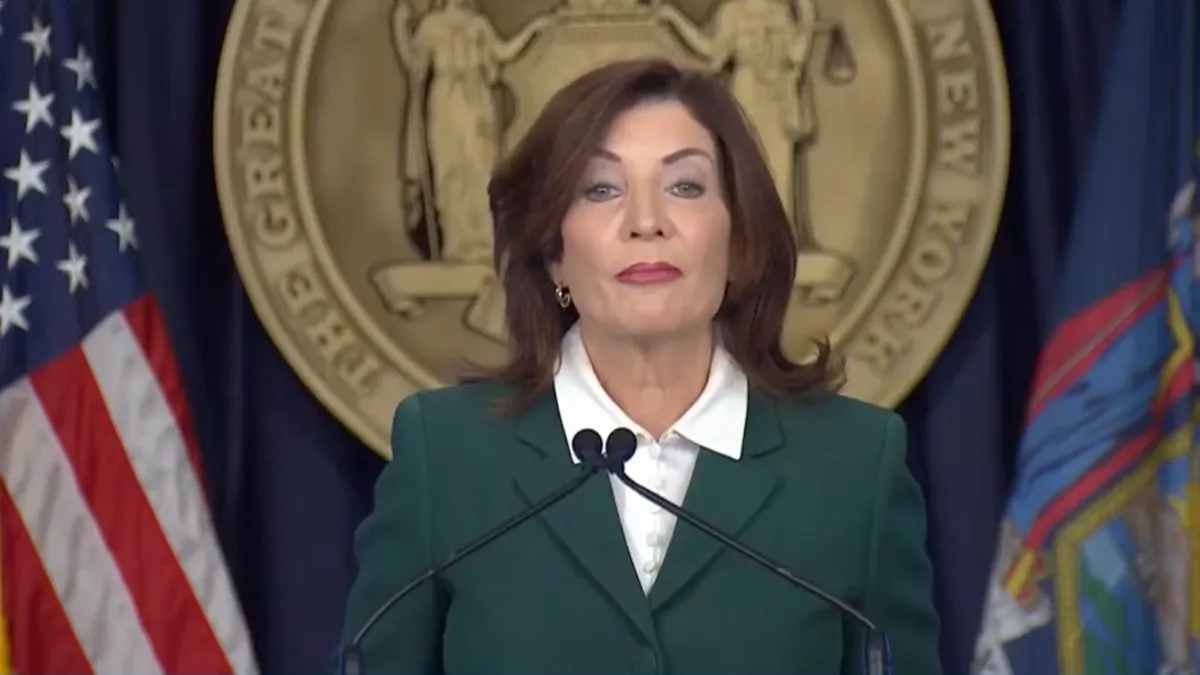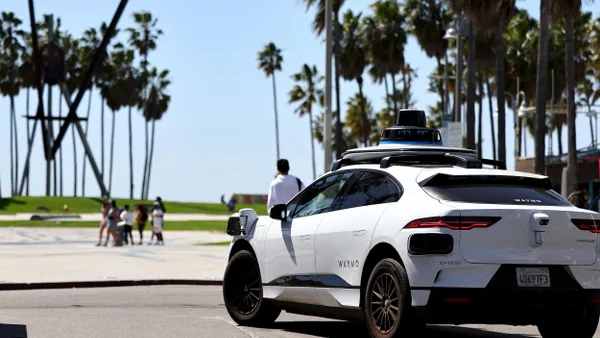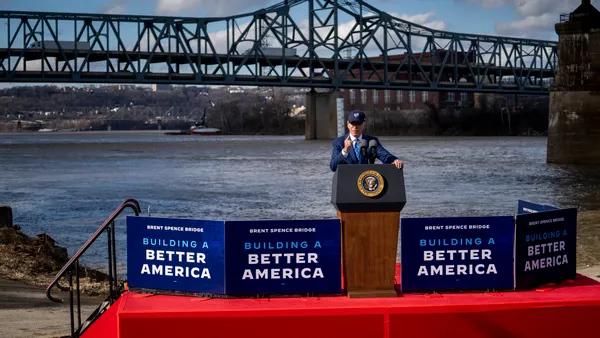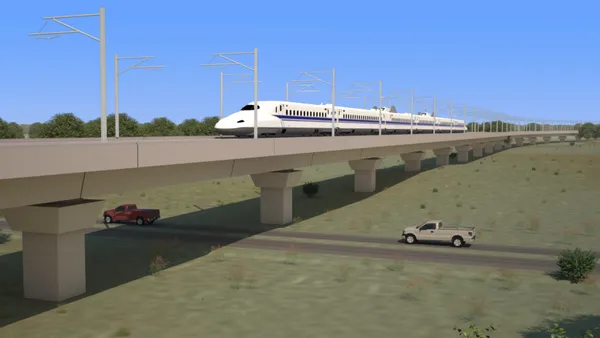UPDATE: Nov. 18, 2024: The New York Metropolitan Transportation Authority board of directors approved the revised congestion pricing plan for Manhattan during a Nov. 17 meeting, allowing the program to be implemented at midnight Jan. 5, 2025. From 2025 to 2027, tolls will be 60% of the amount approved earlier this year, rising to 80% from 2028 to 2030 and to 100% in 2031. For most passenger vehicles entering Manhattan at or below 60th Street during peak hours, the rates will be $9 for the first three years, $12 for the following three years and $15 from 2031 onward.
Jamie Torres-Springer, president of MTA Construction and Development, said during the meeting that the projected funding from the tolling program will enable the transit agency to restart tunnel construction for the Second Avenue subway expansion, which was halted in June. In addition, the MTA will go forward with the purchase of more than 250 electric buses by the end of this year, upgrade signal systems on the city’s subways and begin work on 23 more subway stations to improve access for those with limited mobility.
Dive Brief:
- New York Gov. Kathy Hochul announced on Thursday that the state’s congestion pricing program for Manhattan will begin at midnight on Jan. 5, 2025, subject to approval by the New York Metropolitan Transportation Authority’s board of directors. The board will meet Nov. 18.
- Under pressure to revive the tolling plan following the election of Donald Trump, who has expressed his opposition to congestion pricing, Hochul said Thursday that she lowered the base toll for most passenger vehicles entering Manhattan at or below 60th Street from $15 to $9.
- Although advocates praised Hochul for reinstating the program, which she had halted indefinitely on June 5, the president-elect, House Republicans and some New Jersey Democrats remain opposed to the plan.
Dive Insight:
New York’s congestion pricing program originates from a 2019 state law with twin goals of relieving traffic congestion in Manhattan’s central business district while generating revenue to support the MTA’s capital investments. “I'm proud to announce we have found a path to fund the MTA, reduce congestion and keep millions of dollars in the pockets of our commuters,” Hochul said in a Nov. 14 live-streamed video. The governor also said that the reduced toll charge “is enough to secure the $15 billion in MTA funding that congestion pricing was intended to support.”
Multiple advocates of the tolling plan reached out to Smart Cities Dive with statements of support:
- Kate Slevin, executive vice president of the Regional Plan Association: “This critical policy should become the national example for how cities can simultaneously fund critical investments in mass transit, reduce vehicle emissions, and deliver congestion relief for residents and businesses.”
- Dani Simons, Alstom’s vice president of communications and public affairs for the Americas: “Today’s transportation solutions must reduce emissions, ease commuter congestion, and cut pollution for cleaner, breathable air. As a New York company, Alstom salutes Governor Hochul’s leadership and commitment to these values, demonstrated by her decision today to move forward with a program that will provide a robust and reliable funding stream for transit.” Alstom is a rail car manufacturer with facilities in upstate New York that supplies subway cars to the MTA.
- Fred Krupp, president of the Environmental Defense Fund: “Implementing congestion pricing is the kind of practical, bold action our leaders must take for the long-term health and sustainability of our city and region. Gov. Hochul must see this plan through and get New York moving as soon as possible.”
- The New York Lawyers for the Public Interest: “The billions of dollars in funding expected from this program are urgently needed to retrofit a subway system which is wholly inaccessible to persons with disabilities due to the unavailability of functioning elevators and the large gaps between subway cars and platforms; to improve service and reliability across the transit system; to reduce greenhouse gas and toxic air emissions through traffic reductions and bus and paratransit electrification projects in environmental justice communities; and to create and sustain thousands of good jobs throughout the region.”
However, Sean Qian, professor of civil and environmental engineering at Carnegie Mellon University and director of CMU's Mobility Data Analytics Center, said in a statement that “certain groups will feel the impact of [congestion pricing] more than others, raising considerable equity concerns.” He noted that access to reliable public transit is not the same all over New York City and that those with better bus or subway options will benefit more from the congestion pricing program. “It may be worthwhile to explore ways to equitably allocate [congestion pricing] revenue to support various communities,” he said.
U.S. Rep. Josh Gottheimer, D-N.J., and New Jersey Gov. Phil Murphy, also a Democrat, expressed their opposition to the plan Hochul unveiled Thursday. “I am firmly opposed to any attempt to force through a congestion pricing proposal in the final months of the Biden Administration,” Murphy said in a statement posted on the governor’s website. “New Jersey has never been meaningfully consulted on the design of this plan, either in its initial iteration or the version that was announced today. Perhaps that is because this effort has always simply been a way to take money from the pockets of New Jersey residents to bail out the MTA from a mountain of debt,” he said.
President-elect Donald Trump told the New York Post that he strongly disagrees with Hochul’s decision to implement the congestion pricing plan. “It will put New York City at a disadvantage over competing cities and states, and businesses will flee,” he said.
U.S. Rep. Sam Graves, R-Mo., chair of the House Transportation and Infrastructure Committee, said in an emailed statement, “President-elect Trump has made it clear that he does not support this congestion pricing scheme, and the rush to institute it before he can take office is a blatantly political move.” He added that his committee “will consider all options to conduct the necessary oversight of this issue as we move forward.” Graves is reportedly being considered to head the Department of Transportation in the forthcoming Trump administration.












